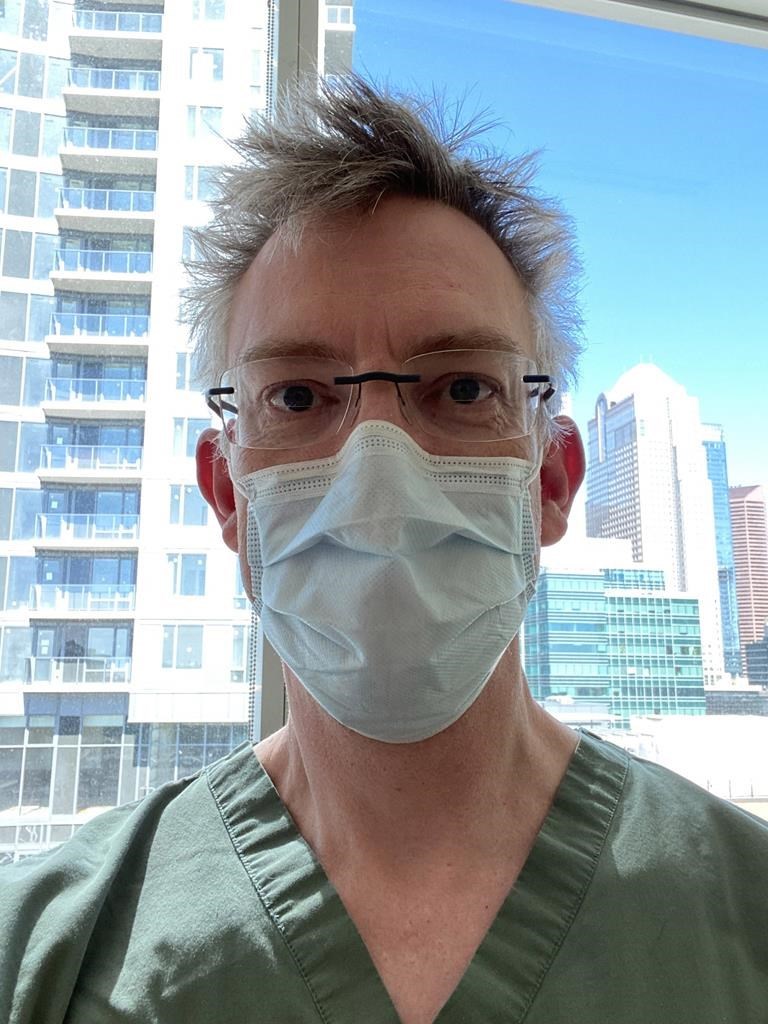CALGARY — A family doctor in Calgary has filed a human rights complaint over Ottawa's decision to no longer require masks on airplanes to prevent the spread of COVID-19.
The federal government has announced the end of mandatory vaccination, quarantine and masks on planes and trains starting Saturday.
Dr. David Keegan, who has a cardiopulmonary condition, said he was quite concerned when he heard Monday's announcement and filed his complaint with the Canadian Human Rights Commission that afternoon.
"Airplanes are relatively small volume and there are people in them," he said in an interview Wednesday.
"Even with masking, there can be spread of COVID. But suddenly, if now masks are not required, there are going to be some people in an aircraft who either knowingly or unknowingly have COVID and could be easily spreading it to other people."
Keegan said COVID-19 can be a deadly and disabling disease, leading to complex health issues for weeks or months after being infected.
The Public Health Agency of Canada still strongly recommends that people wear masks, particularly in crowded environments such as planes and trains.
"The science is clear: wearing a mask is clearly a means of personal protection that is extremely effective," Dr. Howard Njoo, Canada's deputy chief health officer, said Monday. "I hope Canadians will make an enlightened decision about this."
Keegan, who's also a professor at the Cumming School of Medicine at the University of Calgary, said he will continue to wear a mask if he's required to travel — as he had to recently to go to Toronto for surgery — but he's no longer sure he can fly.
"The problem is one-way masking doesn't provide anywhere near the protection as if all parties are masking," he said. "COVID is airborne, so the air gets contaminated when somebody is simply speaking who has COVID."
Keegan said if that person is wearing a mask, it can filter some of the virus.
"What I am seeking is reasonably clean air and requiring masking on airplanes is a great way and easy way to keep the shared air in aircraft reasonably less contaminated," he said.
Federal Health Minister Jean-Yves Duclos said earlier this week that the negative attitudes of some passengers have made it difficult for airlines and crews to enforce the mask mandate in recent months, and cited that as a factor in the decision.
"The transmission of the variants of COVID are domestic-based, for the most part, and therefore, this is what we should stress: masking is highly recommended … but it is not something that can be, in a sense, forced," Duclos said Monday.
Keegan, however, questioned why mandatory masking would be removed if domestic transmission is driving COVID-19 cases.
"It actually makes no sense. I just don't understand that argument," he said.
"If he's saying COVID in Canada is being spread domestically, then why on Earth would you remove a key thing to limit domestic spread? It makes no scientific or logical sense at all."
This report by The Canadian Press was first published Sept. 28, 2022.
Colette Derworiz, The Canadian Press



